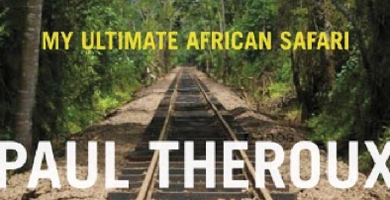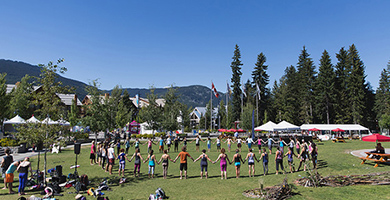Paul Theroux: The Tao of Travel
Legendary travel writer Paul Theroux talks to wandermelon about his latest book, The Tao of Travel: Enlightenments from Lives on the Road.
Paul Theroux has spent 50 years traveling the globe and sharing his adventures with readers. The prolific travel writer first gained notoriety with The Great Railway Bazaar, an account of his train travel between London and Japan. He has also written 28 novels from regions like Britain, Patagonia, the South Pacific, Asia, and Africa.
In his latest book, The Tao of Travel, the author offers readers a glimpse at what he calls “my personal anthology.” It’s a collection of his own observations from life on the road, along with the work of some of his favorite writers like Freya Stark, Dervla Murphy, Charles Dickens, Pico Iyer, and Graham Greene who have helped shape him as a traveler for the last 50 years. Theroux spoke to wandermelon by phone from his home in Hawaii.
What inspired you to do a collection?
All my traveling life people have been asking me what’s my favorite travel book. It’s like saying what’s your favorite movie. There are so many of them; there’s 50 or 100 of them. I also notice there are so many ways of traveling that I thought I’d put everything interesting about travel: my favorite places, places that I don’t like, the things people take with them when they travel, how long they spend when they travel. All the aspects of travel that I find curious and worth writing about.
Can you talk about some of the destinations you visited and didn’t like?
My chapter in the book titled Evocative Name, Disappointing Place discusses this. For example a place with a beautiful name like Mandalay – it’s really just a dusty flat place next to Burma. Or Baghdad, the city of Arabian Nights, it is just a horrible place and it’s always been a horrible place. Shepard’s Bush in England–it is gray, urban, and overpopulated. Singapore sounds so romantic but it is far from romantic. It’s a highly organized, controlled place. I guess it’s pretty well run but you better watch yourself.
I lived in Singapore for two years so I know what you mean. It feels like someone is always watching over you there.
In my book Ghost Train, I revisit Singapore. The people are uptight, paranoid, not too friendly – even to each other. But it’s a prime example of an evocative name, disappointing place.
How frequently are you still traveling?
I travel all the time. I was in Africa a few months ago for three weeks. I started off in South Africa and I went to Jo’berg, Botswana, Zambia and Kenya.
Did you visit parts of Africa you had been before and if so how much has it changed?
I had visited Johannesburg before and wrote about it in Dark Star Safari. I was there in 2001 and also in the 80’s and 90’s. It is a very neglected part of the world. People go there to go on safari but it’s a big sprawling city and it’s not developing as it had intended. For that reason I like to travel to see how things change or even see how things don’t develop.
What is the most disappointing place that you’ve returned to?
Probably Africa. I was a teacher in Malawi. There were 1 million people in the country in 1963. Now there are 13 million people. 1 million are orphans. It used to have a lot of trees, but the trees have been cut to use as fuel. So Malawi has changed a lot. Most African countries are places that people want to leave. They want to go to Europe, the States, Australia, so the disappointment is that the people are not hopeful.
What’s the single most vital piece of travel wisdom you have received?
Be patient. Most travelers don’t have a lot of time. They go to places and are in a hurry and don’t realize that actually you have got to take your time. If you’re really traveling rather than just going on vacation; if you’re going on a vacation you’ve got limited time. You’ve only got a week then you need to make it count. But if you are traveling it should be somewhat open ended. You shouldn’t feel like you need to get to a place in a big hurry. You’ve got to sort of go with the flow. The best advice I ever had was to be patient.
How has the travel experience changed since you embarked on your first trip? Has technology improved it?
My wife likes to know where am so I take a blackberry and keep in touch. But apart from that I don’t make a lot of phone calls. I’m not a great believer in taking a lot of technology. I think you should keep it as simple as possible.
What are the next trips you have planned?
I’d like to go back to Africa. I have a plan to go to Southern Africa. My book Dark Star Safari – I’d like to resume that trip and travel to other parts of Africa and maybe write about it.
Is there a favorite destination you like to visit?
When people always ask me where I really want to go, I always say I like going home. I’m in Hawaii for half of the year. I’m from Massachusetts so I go there in summer.
With all of the chain stores invading every remote corner of the globe, do you feel like the world is getting smaller and there are less remaining unspoiled destinations?
There are fewer but when it’s good business, I mean there are versions of Starbucks in cities all over the world. But there’s still places you can go – they’re not spoiled, they’ve become economic opportunities. So they resemble each other more and more and you’re less compelled to go there.
But although a place might be superficially familiar and have a Starbucks and a 7-11, still what lies behind it is another culture and although it may look like suburban LA or whatever, when people go home they have their own language, their own culture, and customs.
Do you think of yourself more as a travel writer or novelist?
I think of myself as a writer I guess. I’ve written more novels than travel books but I think of the novel as a more superior form of writing. It’s much more difficult but much more satisfying. But the travel book, the traveler’s tale, is an enduring form. Really the origin of the novel is traveler’s tales. The earliest novel in English is Robinson Crusoe. And Robinson Crusoe is a narrative of a guy who is a castaway on an island and what happened to him. It really is like a backpacker story. So the first English novel is like a travel book.
Now that you have completed the Tao of Travel, are you working on any more travel books or novels?
I have a novel coming out early next year called The Lower River.
The Tao of Travel: Enlightenments from Lives on the Road is available for purchase here.
Latest posts by Terena Thyne Eisner
- BALI Wellness Retreat - January 24, 2021
- Michael Webb’s memoir Moving Around: A Lifetime of Wandering - November 10, 2018
- Staycation at Four Seasons in LOS ANGELES - May 4, 2014






